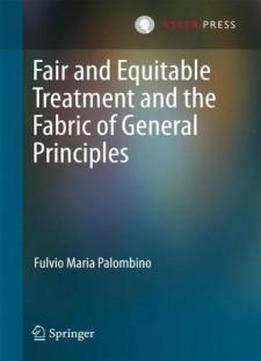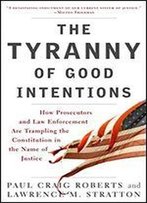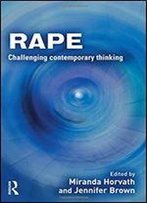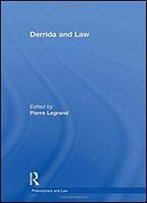
Fair And Equitable Treatment And The Fabric Of General Principles
by Fulvio Maria Palombino /
2017 / English / PDF
2.6 MB Download
This book moves from the circumstance whereby currently the
obligation to provide
This book moves from the circumstance whereby currently the
obligation to provide
fair and equitable treatment (FET) to foreign investments is
included in the majority of
fair and equitable treatment (FET) to foreign investments is
included in the majority of
international investment agreements and has proved to be the most
invoked standard in
international investment agreements and has proved to be the most
invoked standard in
investor-State arbitration. Hence, it is no overstatement to
describe this standard as the
investor-State arbitration. Hence, it is no overstatement to
describe this standard as the
basic norm of international investment law. Yet both its meaning
and normative basis
basic norm of international investment law. Yet both its meaning
and normative basiscontinue to be shrouded in ambiguity and, as a consequence, to
inspire a considerable
continue to be shrouded in ambiguity and, as a consequence, to
inspire a considerable
number of interpretations by legal writers. The book’s precise
aim is to unravel such
number of interpretations by legal writers. The book’s precise
aim is to unravel such
ambiguity, arguing from the idea that FET has become part of the
fabric of general international
ambiguity, arguing from the idea that FET has become part of the
fabric of general international
law, but has done so by means of a source somewhat neglected in
legal doctrine.
law, but has done so by means of a source somewhat neglected in
legal doctrine.
This being the category of general principles peculiar to a
certain field of international
This being the category of general principles peculiar to a
certain field of internationallaw, i.e. those principles having their own foundations in the
international legal order
law, i.e. those principles having their own foundations in the
international legal order
itself, but which, through the mediation of the judge, end up
being shaped according
itself, but which, through the mediation of the judge, end up
being shaped according
to the features typical of a specific normative field. The book,
as well as having a solid
to the features typical of a specific normative field. The book,
as well as having a solid
theoretical backdrop as its basis, offers a careful and critical
analysis of pertinent case
theoretical backdrop as its basis, offers a careful and critical
analysis of pertinent case
law, and will prove useful to both scholars and practitioners.
law, and will prove useful to both scholars and practitioners.Fulvio Maria Palombino
Fulvio Maria Palombino is Professor of International Law
at the Law Department of the
is Professor of International Law
at the Law Department of the
University of Naples Federico II and a member of the Executive
Board of the European
University of Naples Federico II and a member of the Executive
Board of the European
Society of International Law.
Society of International Law.











